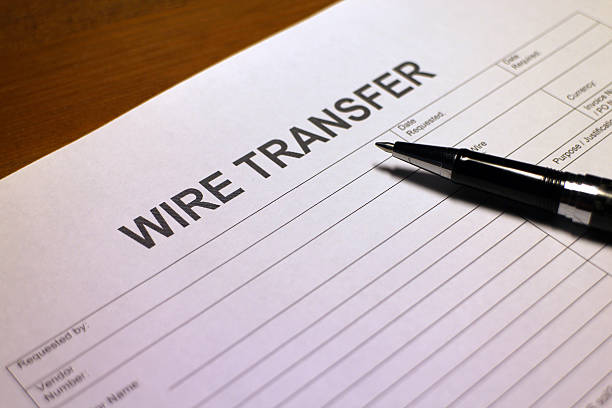A domestic wire transfer is a financial transaction that involves sending money within the same country. Here are the primary characteristics of domestic wire transfers:
Same-Country Transactions: Domestic wire transfers occur when both the sender's and recipient's bank accounts are located within the same country.
Currency Consistency: The currency used for domestic wire transfers is typically the national currency of the country, such as the US dollar (USD) in the United States.
Routing and Account Numbers: To initiate a domestic wire transfer, you'll need the recipient's bank routing number and account number. These details ensure that the funds reach the correct account within the same country's banking system.
Speed and Cost: Domestic wire transfers are usually faster and less expensive than international transfers. They often take one business day or less to complete, and fees are generally lower.
International Wire Transfer
An international wire transfer involves sending money between bank accounts located in different countries. Here are the primary characteristics of international wire transfers:
Cross-Border Transactions: International wire transfers occur when the sender and recipient have bank accounts in different countries. The funds cross national borders.
Currency Conversion: Since different countries have their own currencies, international wire transfers may involve currency conversion. For example, if you're sending money from the US to a recipient in Europe, your US dollars will be converted into euros (or the recipient's local currency).
SWIFT or IBAN: International wire transfers require additional information, such as the recipient's bank's SWIFT code or the International Bank Account Number (IBAN). These codes ensure the funds are directed to the correct foreign bank.
Speed and Cost: International wire transfers typically take longer to process compared to domestic transfers. Depending on the countries involved and the banks used, it can take anywhere from a few business days to a week or more. Additionally, international wire transfers often come with higher fees, including currency conversion fees and intermediary bank fees.
Regulations and Documentation: International transfers are subject to stricter regulations due to anti-money laundering (AML) and Know Your Customer (KYC) requirements. This may require additional documentation and verification steps.
Choosing Between Domestic and International Wire Transfers
The choice between domestic and international wire transfers depends on the specific circumstances:
For transactions within your own country, a domestic wire transfer is typically the most straightforward and cost-effective option.
International wire transfers are necessary when you need to send money across borders, such as for international business transactions, paying overseas suppliers, or sending funds to family members abroad. Be prepared for longer processing times and potentially higher fees.
Conclusion
In summary, the key differences between domestic and international wire transfers lie in the location of the recipient's bank account, the currency used, the additional information required, the speed of processing, and the associated costs. Understanding these distinctions will help you make informed decisions when transferring funds, ensuring that your money reaches its destination efficiently and securely, whether it's within your own country or across international borders.
Frequently asked questions (FAQs) for bank transfers




